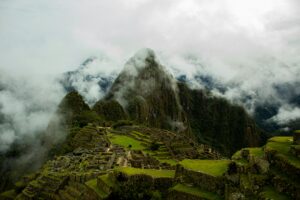Living in Peru for at least two years with legal residency is the key requirement for Peru citizenship by naturalization.
Compared to many other countries, Peru’s requirements are relatively accessible for foreigners seeking full citizenship.
Naturalization is one of the most accessible ways for foreigners to obtain Peruvian citizenship especially for those who have lived in the country for several years or have close personal ties to Peruvian citizens.
Here’s what this article covers:
- How to apply for Peruvian citizenship
- What’s the timeline for Peru citizenship by naturalization?
- How to get Peru permanent residency
- Can you get dual citizenship in Peru?
- What is the strength of Peru passport?
My contact details are hello@adamfayed.com and WhatsApp +44-7393-450-837 if you have any questions.
The information in this article is for general guidance only. It does not constitute financial, legal, or tax advice, and is not a recommendation or solicitation to invest. Some facts may have changed since the time of writing.

How Do You Become a Citizen of Peru by Naturalization?
Under Peruvian law, naturalization is the process by which a foreign national voluntarily acquires Peruvian citizenship after fulfilling certain legal and residency requirements.
Unlike citizenship by descent or marriage, naturalization is based on long-term presence and integration into Peruvian society.
To qualify, applicants must meet the following criteria:
- Legal residence in Peru: You must have resided continuously in Peru for a minimum number of years (typically two years if married to a Peruvian, or longer under standard routes).
- Good conduct and integration: Applicants are expected to demonstrate ties to the country, such as employment, community involvement, and a working knowledge of Spanish and Peruvian customs.
- Clean criminal record: A history of serious criminal offenses can disqualify an applicant from naturalization.
The application is submitted to DIGEMIN (Dirección General de Migraciones), Peru’s national immigration authority.
Once accepted, successful applicants take an oath of allegiance and receive full citizenship rights, including a national ID (DNI) and eligibility to apply for a Peruvian passport.
How Many Years Does It Take to Get Citizenship in Peru?

The standard residency requirement is two years of continuous legal residence before an applicant can apply for citizenship.
However, there are specific paths that may affect this timeline:
- Spouses of Peruvian citizens can apply for naturalization after two years of marriage and legal residence in the country.
- Citizens of Latin American and Iberian countries (such as Portugal, Spain, Colombia, or France) may also benefit from streamlined eligibility due to regional agreements, though the two-year requirement generally still applies.
It’s important to note that the residency must be legal and uninterrupted.
Applicants must remain in good standing with immigration authorities and should not exceed the permitted duration of absence from Peru during their qualifying period.
How to Become a Permanent Resident of Peru
Permanent residency in Peru is an essential first step toward naturalization. Before you can apply for citizenship, you must first legally reside in the country, usually starting with a temporary visa and eventually transitioning to permanent resident status.
Here’s a breakdown of the process:
- Step 1: Enter Peru on a qualifying temporary visa, such as a work visa, investor visa, family reunification visa, or retirement visa.
- Step 2: Maintain legal temporary residency for at least two consecutive years without major gaps or violations of immigration status.
- Step 3: Apply for permanent residency through Peru’s immigration authority, DIGEMIN (Dirección General de Migraciones).
To apply for permanent residency, you’ll typically need:
- A valid passport and current Peruvian visa
- Proof of sustained legal residence
- Evidence of financial stability (such as income, pension, or investment)
- A local address in Peru
- A police clearance certificate showing a clean criminal record
Once granted, permanent residency allows you to remain in Peru indefinitely and is a required milestone for those pursuing citizenship.
Does Peru Accept Dual Citizenship?
Yes, Peru permits dual citizenship under its nationality laws.
This means that foreign nationals who naturalize as Peruvian citizens are not required to renounce their original nationality—an advantage for those who wish to maintain ties to both countries.
There is no legal obligation to surrender your birth citizenship when acquiring Peruvian nationality, and Peru does not penalize individuals for holding more than one passport.
However, applicants should always confirm the dual citizenship rules of their home country.
While Peru is flexible, some countries such as Japan or China may restrict or prohibit dual nationality, and accepting Peruvian citizenship could result in the automatic loss of their original one.
Benefits of Peruvian Citizenship
- Political rights – Citizens can vote in national, regional, and local elections and even run for public office, giving them full participation in Peru’s democratic processes.
- Public services access – Citizenship guarantees access to Peru’s public healthcare system, educational institutions, and social security benefits on equal footing with native-born citizens.
- Global mobility – A Peruvian passport allows visa-free or visa-on-arrival travel to over 151 countries, including much of Latin America, parts of Europe, and Southeast Asia.
- Citizenship for descendants – Naturalized citizens can transmit Peruvian nationality to their children, ensuring legal continuity for future generations.
- Unrestricted residency – As a citizen, you no longer need to renew residency permits or worry about visa expiration. You gain the right to live and work in Peru permanently.
Conclusion
Peru citizenship by naturalization offers a relatively accessible path for long-term residents, especially those with family or cultural ties to the country.
With just two years of legal residence required for most applicants, Peru’s naturalization laws are among the more flexible in Latin America.
As with any legal process, ensuring complete documentation and compliance with DIGEMIN’s requirements is key to a smooth application.
Pained by financial indecision?

Adam is an internationally recognised author on financial matters with over 830million answer views on Quora, a widely sold book on Amazon, and a contributor on Forbes.



